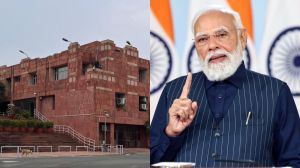First Drafts of History
What is the secret of detecting world-changing events?
What is the secret of detecting world-changing events?
Remember 1979? Did they who tracked events in the course of that year have a suspicion that its reverberations would continue to be felt down the decades? A recent book,Strange Rebels: 1979 and the Birth of the 21st Century,by Christian Caryl,hints that so many of our todays are well explained by events back then,primarily five: the Iranian revolution,the Soviet invasion of Afghanistan,Margaret Thatchers election as prime minister of Britain signaling a qualitative shift of the islands political economy and the start of change elsewhere,Pope John Paul IIs first Polish pilgrimage and Deng Xiaopings decision to kickstart economic reform in China. Like it or not, he contends,we of the twenty-first century still live in the shadow of 1979.
Taken individually,each of the five markers to highlight 1979 is,especially in hindsight,of immense consequence globally barring,perhaps,Thatchers election. In fact,perhaps,we in India need to dwell longer on the political developments of that year,as the Janata Party came apart and arguably set off the reconfiguring of the political landscape in a process that continues to this day. But the grand claims Caryl makes so rivetingly beg the question,what is it like to actually live through and report potentially game-changing events? How may we glean little hints about the enormity of an unfolding event?
Another new book is especially illumining when read with these questions in mind. To mark its 50th anniversary,The New York Review of Books has published a sampling of reportage over the past five decades The New York Review Abroad: Fifty Years of International Reportage. Taken together,the despatches provide a wide-angled view of how the global landscape has changed. There is Mary McCarthys report from Vietnam in 1967,profiling Saigon at a time when it appeared more of an American city,less exotic then to north Americans than,say,Florence. Skipping on to William Shawscrosss report The Burial of Cambodia,1984,it is a reminder of how easily we forget the price Southeast Asia paid for being caught in Cold War confrontations. To get its measure,he goes surveying a former Khmer Rouge interrogation centre in Phnom Penh that had been turned into a museum by the Vietnamese,who called it an Asian Auschwitz,all while the guerrillas were being revitalized as a form of anti-Vietnamese resistance.
In A Letter from South Africa 1976,Nadine Gordimer,who later received the Nobel prize for literature,examines the significance of June 16 that year when schoolchildren in Soweto launched a protest against the imposition of Afrikaans as a medium of instruction. The date is now marked as Youth Day in South Africa and is a public holiday. Then,as Gordimer wrote,the end of Apartheid was a distant dream but it was clear that the regime could not hold. But who would effectively organise the resistance? Even then,it was evident whod be best suited to lead: Of the black leaders whom the vast majority of urban blacks would give a mandate to speak for them,Nelson Mandela and his lieutenants Walter Sisulu and Govan Mbeki,of the banned African National Congress,are still imprisoned for life on Robben Island. Did they know how long itd be another decade and a half before Mandela would be released or how effectively hed heed that mandate?
Meanwhile,With the Northern Alliance by Tim Judah November 2001 is remarkably prescient. In the aftermath of 9/11,when it was not clear how many personnel and resources the Americans were planning to commit to Afghanistan,he spent time in the north of the country,taking stock especially of the Northern Alliances strength after the assassination of Ahmad Shah Massoud. How would the overlap of the Wests and the Alliances anti-Taliban interests play out? If the aim of the war is to get rid of the Taliban,as opposed to trying to shut down Osama bin Ladens network and camps,and arrest him,then it would seem that the Northern Alliance members are the Wests strategic allies. The Alliance is clearly ready to fight; but it is not certain it is strong enough to take on even a weakened Taliban army spread out across the country. On the eve of the beginning of Americas retreat from this battle zone,the Karzai government clearly is not.
There are many ways to read the first drafts of history,being written even as it is unfolding. One of them,recommended by a reading of The New York Review Abroad,is to imagine todays appraisals,despatched on the go,as if one were reading them five years hence. Try it.
- 01
- 02
- 03
- 04
- 05































